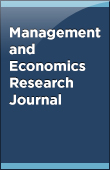


The foundation of this paper is built on the premise that foreign direct investment (FDI) follows economic growth and development as opposed to the narrative that argues otherwise. Considering that background, this paper pursued finding the direction of causality and the kind of relationship that exists between the two main variables of interest (FDI and Economic growth) using time series data spanning 1980–2018. Using the vector-autoregressive error correction mechanism and the autoregressive distributive lag, our paper found neither uni nor bidirectional causality between economic growth and FDI in South Africa. The findings support the notion that FDI follows growth and development as opposed to the current policy stance that seeks to attract more FDI without exhausting the potential carried by domestic firms in stimulating economic growth. The results from Granger causality tests, however, could not reject the null hypothesis of the causality that runs from unemployment to economic growth. The study found that unemployment in South Africa Granger causes economic growth significantly. Recommendations arising from our findings are that South African policymakers may need to consider paying more attention to inward-looking policies. More efforts if possible should be put toward making sure that domestic investment is stimulated through making it cheaper especially for small businesses to secure funding as well as making the investment environment small business-friendly to improve their success and contribution toward sustainable economic growth.
Read Article